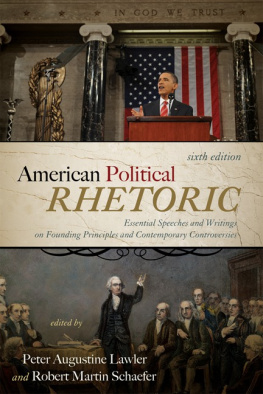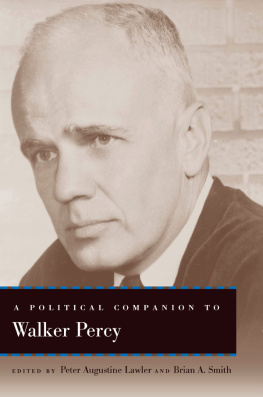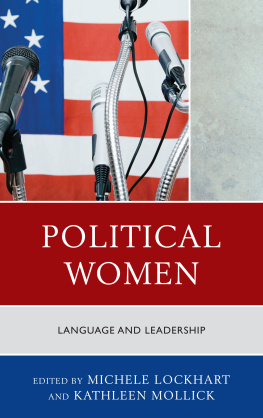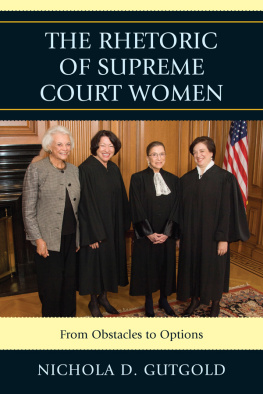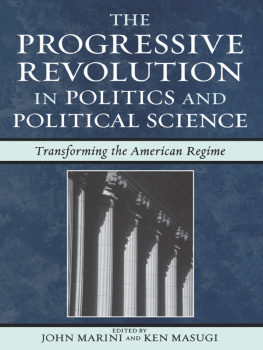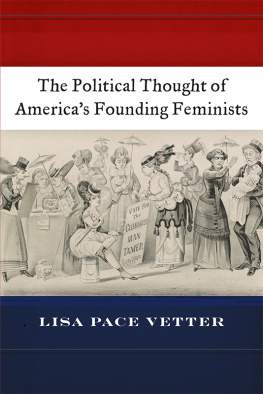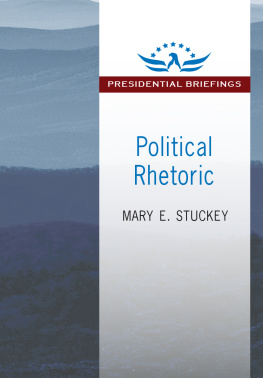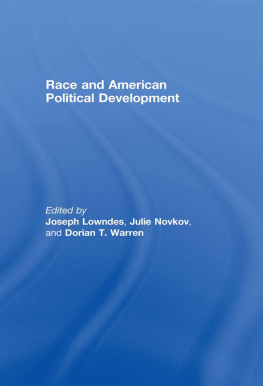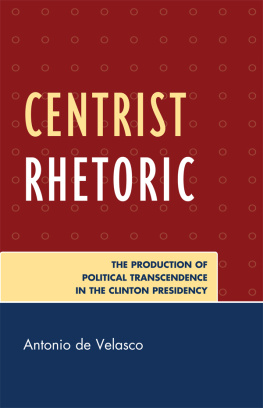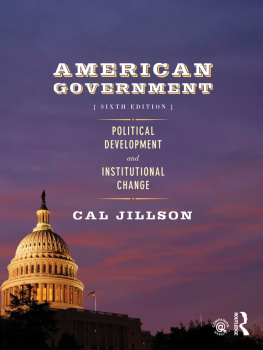Peter Augustine Lawler - American political rhetoric essential speeches and writings on founding principles and contemporary controversies
Here you can read online Peter Augustine Lawler - American political rhetoric essential speeches and writings on founding principles and contemporary controversies full text of the book (entire story) in english for free. Download pdf and epub, get meaning, cover and reviews about this ebook. City: Lanham;Md. u.a, year: 2010, publisher: Rowman & Littlefield Publishers, genre: Politics. Description of the work, (preface) as well as reviews are available. Best literature library LitArk.com created for fans of good reading and offers a wide selection of genres:
Romance novel
Science fiction
Adventure
Detective
Science
History
Home and family
Prose
Art
Politics
Computer
Non-fiction
Religion
Business
Children
Humor
Choose a favorite category and find really read worthwhile books. Enjoy immersion in the world of imagination, feel the emotions of the characters or learn something new for yourself, make an fascinating discovery.
- Book:American political rhetoric essential speeches and writings on founding principles and contemporary controversies
- Author:
- Publisher:Rowman & Littlefield Publishers
- Genre:
- Year:2010
- City:Lanham;Md. u.a
- Rating:3 / 5
- Favourites:Add to favourites
- Your mark:
- 60
- 1
- 2
- 3
- 4
- 5
American political rhetoric essential speeches and writings on founding principles and contemporary controversies: summary, description and annotation
We offer to read an annotation, description, summary or preface (depends on what the author of the book "American political rhetoric essential speeches and writings on founding principles and contemporary controversies" wrote himself). If you haven't found the necessary information about the book — write in the comments, we will try to find it.
American Political Rhetoric is the only reader for introductory classes in American politics and government and political communication designed to explore fundamental political principles through classic examples of political rhetoric, from the Declaration of Independence to today. Selections include the entire political spectrum and contributors range from the founders to elected public officials, Supreme Court opinions, and representatives of historic movements for social change. Organized thematically, American Political Rhetoric allows students to explore the institutions of government and current controversies in civil rights, race, gender, and Americas role in the world as the issues have evolved over time.
Peter Augustine Lawler: author's other books
Who wrote American political rhetoric essential speeches and writings on founding principles and contemporary controversies? Find out the surname, the name of the author of the book and a list of all author's works by series.
American political rhetoric essential speeches and writings on founding principles and contemporary controversies — read online for free the complete book (whole text) full work
Below is the text of the book, divided by pages. System saving the place of the last page read, allows you to conveniently read the book "American political rhetoric essential speeches and writings on founding principles and contemporary controversies" online for free, without having to search again every time where you left off. Put a bookmark, and you can go to the page where you finished reading at any time.
Font size:
Interval:
Bookmark:
American Political Rhetoric
American Political Rhetoric
Essential Speeches and Writings On Founding Principles and Contemporary Controversies
Sixth Edition
Edited by
Peter Augustine Lawler
and
Robert Martin Schaefer
ROWMAN & LITTLEFIELD PUBLISHERS, INC.
Lanham Boulder New York Toronto Plymouth, UK
Letter from a Birmingham Jail reprinted by arrangement with The Heirs to the Estate of Martin Luther King, Jr., c/o Writers House as agent for the proprietor New York, NY. Copyright 1963 Dr. Martin Luther King Jr; copyright renewed 1991 Coretta Scott King.
Published by Rowman & Littlefield Publishers, Inc.
A wholly owned subsidiary of The Rowman & Littlefield Publishing Group, Inc.
4501 Forbes Boulevard, Suite 200, Lanham, Maryland 20706
http://www.rowmanlittlefield.com
Estover Road, Plymouth PL6 7PY, United Kingdom
Copyright 2010 by Rowman & Littlefield Publishers, Inc.
All rights reserved . No part of this book may be reproduced in any form or by any electronic or mechanical means, including information storage and retrieval systems, without written permission from the publisher, except by a reviewer who may quote passages in a review.
British Library Cataloguing in Publication Information Available
Library of Congress Cataloging-in-Publication Data
American political rhetoric : essential speeches and writings on founding principles and contemporary controversies / edited by Peter Augustine Lawler and Robert Martin Schaefer. 6th ed.
p. cm.
Includes bibliographical references.
ISBN 978-1-4422-0294-8 (pbk. : alk. paper) ISBN 978-1-4422-0295-5 (electronic)
1. United StatesPolitics and governmentSources. 2. Constitutional historyUnited StatesSources. I. Lawler, Peter Augustine. II. Schaefer, Robert Martin.
JK21.A462 2010
320.973dc22 2010017981
` The paper used in this publication meets the minimum requirements of American National Standard for Information SciencesPermanence of Paper
for Printed Library Materials, ANSI/NISO Z.39.48-1992.
Printed in the United States of America
For our families
Democracy is a fragile form of government because it presupposes a people who are willing and capable of self-rule. The Framers of the American Constitution had, in some ways, unprecedented confidence that the American people could be that willing and capable. They also thought the American people needed the help of a strong constitution that created durable and effective political institutions. They did what they could to make clear, both for their time and for the ages, the purposes of that Constitution. This reader is mostly about the Constitution and the controversies it has engendered over the course of our history.
The Framers also believed that their experiment was founded upon political principles and institutional arrangements that were previously not fully understood or simply dismissed by others throughout history. These principlesequality and libertyhave in many ways shaped who we are as a people and how we live. Our political life is still animated by arguments over the meaning and application of these principles. So one purpose of this book is to allow students to understand and enter into the key political debates of our time.
Alexis de Tocqueville, the best commentator both on America and on democracy, notices that devotion to equality is the distinctive characteristic of our times. So distinctive, in fact, that he likens it to a great river that in the end attracts and carries along in its course all the sentiments and all ideas. That devotion, however, doesnt account for all we are as a people. There is even the danger that excessive individualismor the most apathetic and self-centered form of libertywill erode our common belief in the proposition that all men are created equal. The true American goal is equality in liberty, and liberty is, among other things, political liberty or the proud activity of citizens in defense of their country and its distinctive way of life. True liberty, Tocqueville explains, displays itself as a kind of individuality only characteristic of beings with souls.
Tocqueville also notices that the Americans cannot help but distrust authority. They are suspicious of the words of others, and they prefer to see everything for themselves. This book, contrary to the standard American government text, allows students to see what our statesmen have said for themselves and to develop their own interpretations of what they meant and how we should be guided by their words and deeds. One of our goals is to teach students to comprehend and to make their own political arguments. In the best cases, they will learn to appreciate and employ themselves the psychological nuance and astuteness characteristic of real political leaders. One level, of course, of any effective political argument is rhetorical; this book allows students to figure out both how to persuade and when they should be persuaded.
This sixth edition of American Political Rhetoric includes a number of additions and revisions. These readings touch upon many other important issues in American public life, including race and gender relations, religion, affirmative action, the separation of powers, and federalism. This edition also includes a new chapter on parties and elections. Political parties were not part of the original constitutional order but nonetheless came into existence shortly after the founding. The selections address our Framers original fear of parties and the efforts throughout our political history to make them more responsive and more responsible.
We welcome suggestions and comments about this reader and ask that they be sent to rschaefe@westga.edu or plawler@berry.edu.
1. Alexis de Tocqueville, Democracy in America , trans. Harvey C. Mansfield and Delba Winthrop (Chicago: University of Chicago Press. 2000), Vol. II, Part II, Chap. 1.
Selections in this chapter are accounts of the founding or basic principles of political order in the United States. They, above all else, determine the form of government that was and is still chosen to shape the American way of life.
THE DECLARATION OF INDEPENDENCE,
IN CONGRESS, JULY 4, 1776. THE
UNANIMOUS DECLARATION OF THE
THIRTEEN UNITED STATES OF AMERICA
This is the argument supporting the assertion of independence by the thirteen American colonies in July 1776. The principles on which this argument is based are held to be valid not merely for eighteenth-century Anglo-Americans, but for all human beings at all times and in all places. It is these rational or self-evident truthsnot some irrational tradition or culturethat give Americans coherence as a political community.
When in the Course of human events, it becomes necessary for one people to dissolve the political bands which have connected them with another, and to assume among the powers of the earth, the separate and equal station to which the Laws of Nature and of Natures God entitle them, a decent respect to the opinions of mankind requires that they should declare the causes which impel them to the separation.We hold these truths to be self-evident, that all men are created equal, that they are endowed by their Creator with certain unalienable Rights, that among these are Life, Liberty and the pursuit of Happiness.That to secure these rights, Governments are instituted among Men, deriving their just powers from the consent of the governed,That whenever any Form of Government becomes destructive of these ends, it is the Right of the People to alter or to abolish it, and to institute a new Government, laying its foundation on such principles and organizing its powers in such form, as to them shall seem most likely to effect their Safety and Happiness. Prudence, indeed, will dictate that Governments long established should not be changed for light and transient causes; and accordingly all experience hath shown, that mankind are more disposed to suffer, while evils are sufferable, than to right themselves by abolishing the forms to which they are accustomed. But when a long train of abuses and usurpations, pursuing invariably the same object evinces a design to reduce them under absolute Despotism, it is their right, it is their duty, to throw off such Government, and to provide new guards for their future security.Such has been the patient sufferance of these Colonies; and such is now the necessity which constrains them to alter their former Systems of Government. The history of the present King of Great Britain is a history of repeated injuries and usurpations, all having in direct object the establishment of an absolute Tyranny over these states. To prove this, let Facts be submitted to a candid world.He has refused his Assent to Laws, the most wholesome and necessary for the public good.He has forbidden his Governors to pass Laws of immediate and pressing importance, unless suspended in their operation till his Assent should be obtained; and when so suspended, he has utterly neglected to attend to them.He has refused to pass other Laws for the accommodation of large districts of people, unless those people would relinquish the right of Representation in the Legislature, a right inestimable to them and formidable to tyrants only.He has called together legislative bodies at places unusual, uncomfortable, and distant from the depository of their public Records, for the sole purpose of fatiguing them into compliance with his measures.He has dissolved Representative Houses repeatedly, for opposing with manly firmness his invasions on the rights of the people.He has refused for a long time, after such dissolutions, to cause others to be elected; whereby the Legislative powers, incapable of Annihilation, have returned to the People at large for their exercise; the State remaining in the mean time exposed to all the dangers of invasion from without, and convulsions within.He has endeavoured to prevent the population of these States; for that purpose obstructing the Laws for Naturalization of Foreigners; refusing to pass others to encourage their migration hither, and raising the conditions of new Appropriation of Lands.He has obstructed the Administration of Justice, by refusing his Assent to Laws for establishing Judiciary powers.He has made Judges dependent on his Will alone, for the tenure of their offices, and the amount and payment of their salaries.He has erected a multitude of New Offices, and sent hither swarms of Officers to harrass our people, and eat out their substance.He has kept among us, in times of peace, Standing Armies, without the Consent of our legislatures.He has affected to render the Military independent of and superior to the Civil power.He has combined with others to subject us to a jurisdiction foreign to our constitution, and unacknowledged by our laws; giving his Assent to their Acts of pretended Legislation:For quartering large bodies of armed troops among us:For protecting them, by a mock Trial, from punishment for any Murders which they should commit on the Inhabitants of these States:For cutting off our Trade with all parts of the world:For imposing Taxes on us without our Consent:For depriving us in many cases, of the benefits of Trial by Jury:For transporting us beyond Seas to be tried for pretended offences:For abolishing the free System of English Laws in a neighboring Province, establishing therein an Arbitrary government, and enlarging its Boundaries so as to render it at once an example and fit instrument for introducing the same absolute rule into these Colonies:For taking away our Charters, abolishing our most valuable Laws, and altering fundamentally the Forms of our Governments:For suspending our own Legislatures, and declaring themselves invested with power to legislate for us in all cases whatsoever.He has abdicated Government here, by declaring us out of his Protection and waging War against us.He has plundered our seas, ravaged our Coasts, burnt our towns, and destroyed the lives of our people.He is at this time transporting large Armies of foreign Mercenaries to compleat the works of death, desolation and tyranny, already begun with circumstances of Cruelty & perfidy scarcely paralleled in the most barbarous ages, and totally unworthy the Head of a civilized nation.He has constrained our fellow Citizens taken Captive on the high Seas to bear Arms against their Country, to become the executioners of their friends and Brethren, or to fall themselves by their Hands.He has excited domestic insurrections amongst us, and has endeavoured to bring on the inhabitants of our frontiers, the merciless Indian Savages, whose known rule of warfare, is an undistinguished destruction of all ages, sexes, and conditions. In every stage of these Oppressions We have Petitioned for Redress in the most humble terms: Our repeated Petitions have been answered only by repeated injury. A Prince, whose character is thus marked by every act which may define a Tyrant, is unfit to be the ruler of a free people. Nor have We been wanting in attentions to our British brethren. We have warned them from time to time of attempts by their legislature to extend an unwarrantable jurisdiction over us. We have reminded them of the circumstances of our emigration and settlement here. We have appealed to their native justice and magnanimity, and we have conjured them by the ties of our common kindred to disavow these usurpations, which, would inevitably interrupt our connections and correspondence. They too have been deaf to the voice of justice and of consanguinity. We must, therefore, acquiesce in the necessity, which denounces our Separation, and hold them, as we hold the rest of mankind, Enemies in War, in Peace Friends.
Font size:
Interval:
Bookmark:
Similar books «American political rhetoric essential speeches and writings on founding principles and contemporary controversies»
Look at similar books to American political rhetoric essential speeches and writings on founding principles and contemporary controversies. We have selected literature similar in name and meaning in the hope of providing readers with more options to find new, interesting, not yet read works.
Discussion, reviews of the book American political rhetoric essential speeches and writings on founding principles and contemporary controversies and just readers' own opinions. Leave your comments, write what you think about the work, its meaning or the main characters. Specify what exactly you liked and what you didn't like, and why you think so.

